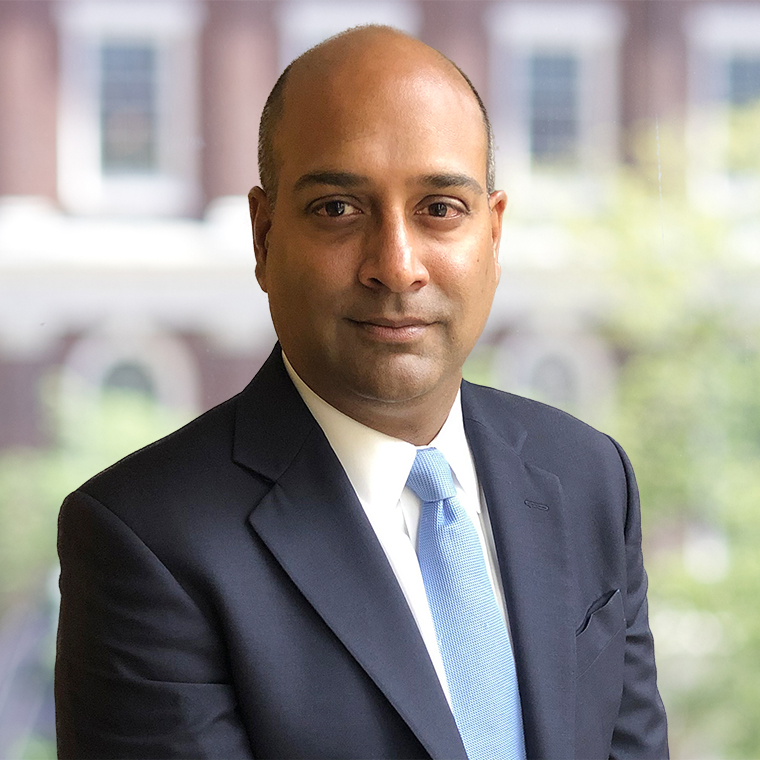Last week, the First Circuit Court of Appeals issued its long-awaited decision in United States v. Regeneron Pharmaceuticals1 with significant implications for health care companies facing allegations of violations of the False Claims Act (FCA) premised on violations of the Anti-Kickback Statute (AKS).2 Regeneron arose in 2020 when the Department of Justice sued Regeneron Pharmaceuticals directly and alleged that it paid millions of dollars to a charitable co-pay foundation in order to induce physicians to prescribe a Regeneron drug used to treat various eye diseases, in violation of the AKS, which in turn led to the submission of false Medicare reimbursement claims, in violation of the FCA.
At issue on appeal was the proper causation standard that was adopted under a 2010 amendment to the AKS. The U.S. District Court for the District of Massachusetts found that the text of the AKS called for a stringent but-for standard. Under this standard, the government must prove that an AKS violation actually caused a physician to provide different medical treatment than he or she would have provided absent the AKS violation. The government appealed, arguing that the court should have followed the more lenient “causal link” standard adopted by the Third Circuit in 2018 in United States v. Greenfield, whereby the government need only identify claims that were “exposed to” illegal remuneration in order to render a claim false.3 Interestingly, another judge in the District of Massachusetts had adopted the Greenfield standard in a parallel case: United States v. Teva Pharmaceuticals USA.4
By adopting the but-for causation standard in Regeneron, the First Circuit joins the Sixth5 and Eighth6 Circuits, which recognized this more stringent standard in 2023 and 2022, respectively. Although no other circuit has accepted the Third Circuit’s more lenient “causal link” standard, there is an emerging, uneven split among the circuits that may soon pave the way for Supreme Court review of the AKS’s causation standard.
I. Background
The AKS criminalizes “knowingly and willfully” offering or paying any remuneration to any person to induce such person to purchase any good, facility or service for which payment may be made in whole or in part under a federal health care program.7 Under a 2010 amendment, “a claim [for payment by a federal health care program] that includes items or services resulting from a violation of [the AKS] constitutes a false or fraudulent claim for purposes of” the FCA.8 The amendment was long-sought by government prosecutors as a way of more easily bringing an FCA claim by bootstrapping onto an AKS violation. Determining which claims “result[] from” a violation of the AKS is significant because an entity that violates the FCA is liable for three times the government’s damages from the individual false claims as well as statutory penalties for each individual false claim.9 Private individuals, known as “relators,” have the right to file civil suits alleging violations of the FCA premised on AKS violations and, if successful, are awarded a percentage of damages.10 By contrast, only the federal government has the authority to bring civil or criminal charges under the AKS.11
Regeneron involves a pharmaceutical company that manufactures Eylea, a drug that treats an eye disease that primarily affects elderly people and thus may be covered by Medicare. Eylea is generally prescribed directly by physicians, and the physician then submits claims for reimbursement to the insurer. The government alleged that Regeneron induced physicians to prescribe Eylea by donating millions of dollars to a patient-assistance foundation to help patients cover the co-pays for the medication. Thus, the government alleged that doctors chose to prescribe Eylea because of the co-pay assistance they knew patients would receive from the foundation, and then submitted those claims to Medicare, thereby submitting claims that “resulted from” an AKS violation. Under the government’s interpretation, claims can “result from” an AKS violation regardless of whether those claims would have been made anyway—that is, even when the doctor would have prescribed the drug whether or not the foundation covered the co-pay. The government argued “all that is required to prove a causal link is that ‘a particular patient is exposed to an illegal recommendation or referral and a provider submits a claim for reimbursement pertaining to that patient.’”12 Regeneron disagreed, arguing that an AKS violation must be a but-for cause of the challenged Medicare claim. In other words, if a physician would have prescribed Eylea anyway, regardless of the co-payment assistance, the subsequent Medicare claim cannot have “result[ed] from” Regeneron’s allegedly illicit payments.
At the district court, Chief Judge F. Dennis Saylor IV of the U.S. District Court for the District of Massachusetts held that the plain meaning of “resulting from” requires that the alleged kickbacks must be the but-for cause of improper Medicare reimbursement submissions in order to violate the FCA. Judge Saylor criticized the Third Circuit’s more lenient “causal link” 13 causation standard as being “fraught with problems,” including that it was “divorced from the actual language of the statute and from basic principles of statutory interpretation [… and] likewise disconnected from long-standing common-law principles of causation.”14 Since the Third Circuit standard has an “unclear” meaning that could lead to different results, Chief Judge Saylor concluded that the “resulting from” language “requires” that the appropriate standard is but-for causation. Given that the determination of the causation standard was pivotal to the outcome of the case, Chief Judge Saylor sought and was granted interlocutory review pursuant to 28 U.S.C. § 1292(b).15
The government argued on appeal that the text of the 2010 amendment, which adopted the “resulting from” language, cannot require but-for causation. In support, the government pointed to Burrage v. United States,16 a 2014 Supreme Court case analyzing the phrase “as a result of” in a separate statute and finding that a phrase like “resulting from” “imposes a requirement of actual causality.” According to the Supreme Court, in the “ordinary course,” actual causality suggests but-for causation, but it is possible to deviate from the ordinary course “if the statute in question provides ‘textual or contextual indications’ for doing so.” The government argued that the 2010 amendment offered both textual and contextual support for rejecting a but-for causation standard.
II. First Circuit Opinion
The First Circuit explored and rejected the government’s “textual and contextual” arguments, concluding that there was no need to deviate from the “ordinary course” in which “resulting from” requires but-for causation.
The government first argued that the text of the AKS does not impose a but-for causation standard. Because the 2010 amendment was “built on” a statutory scheme whose “animating principle” is that “financial conflicts in themselves corrupt medical decisionmaking,” according to the government, it follows that the statute should require only that payments are meant to induce the provision of items or services and that those items or services are subsequently provided. The court rejected this argument, observing that “if Congress wants to make a violation of one statute a per se violation of another, it can easily say so,”17 which the text of the AKS does not.
The government then argued that legislative history does not support a but-for requirement, citing Senate floor testimony by Senator Ted Kaufman, the sponsor of the bill that included the 2010 amendment. Senator Kaufman stated that the “resulting from” language would “ensure that all claims resulting from illegal kickbacks are ‘false or fraudulent,’ even when the claims are not submitted directly by the wrongdoers themselves.” The First Circuit rejected this argument as well, finding “nothing” about Senator Kaufman’s statement inconsistent with an interpretation imposing but-for causation. Rather, the First Circuit observed that the 2010 amendment simply addressed an “arguable weakness” in FCA cases by offering a “different pathway” to establish falsity: even if a physician never personally certified compliance with the AKS, a claim resulting from an AKS violation could still be a false claim.18
Finding no textual or contextual reason to deviate from the but-for standard—already identified by Burrage as the correct reading of “resulting from” in the “ordinary course,”—the First Circuit affirmed the district court and agreed with Regeneron that “to demonstrate falsity under the 2010 amendment, the government must show that an illicit kickback was the but-for cause of a submitted claim.”19
III. Implications of Regeneron
The First Circuit now joins the Sixth20 and Eighth21Circuits in adopting the but-for causation standard, leaving the Third Circuit as the only outlier. In Greenfield, the Third Circuit adopted a more lenient “causal link” standard in which the federal government need only identify claims that were “exposed to” illegal remuneration.22 That court concluded that once the government has established that an AKS violation occurred, proving a causal link requires “a particular patient [to be] exposed to an illegal recommendation or referral and a provider [that] submits a claim for reimbursement pertaining to that patient.”23
In 2022, a few years after the Third Circuit’s ruling, the Eighth Circuit announced its disagreement with Greenfield and held that the “resulting from” language in the 2010 amendment expresses a “but-for causal relationship,” so “when a plaintiff seeks to establish falsity or fraud . . . it must prove that a defendant would not have included particular ‘items or services’ but for the illegal kickback.”24 Adopting this same reasoning one year later, the Sixth Circuit cautioned that a loose reading of causation would sweep too broadly, failing “to protect doctors of good intent, sweeping in the vice-ridden and virtuous alike.”25
The First Circuit’s Regeneron opinion applies additional momentum to the but-for causation standard for AKS/FCA violations. The circuit courts are rightly rejecting the unworkable and incorrect standard espoused by the Third Circuit. Companies facing FCA suits premised on alleged AKS violations must call the government’s and courts’ attention to this growing trend, both to illustrate weaknesses in any potential case and to caution against reliance on a standard that has been rejected repeatedly and is vulnerable to being overturned. In the meantime, however, companies may find that relators will be seeking out districts in the Third Circuit in which to file their qui tam cases alleging AKS/FCA violations. Eventually, this growing circuit split—lopsided though it may be—heightens the chances that the Supreme Court will step in to resolve the split.





